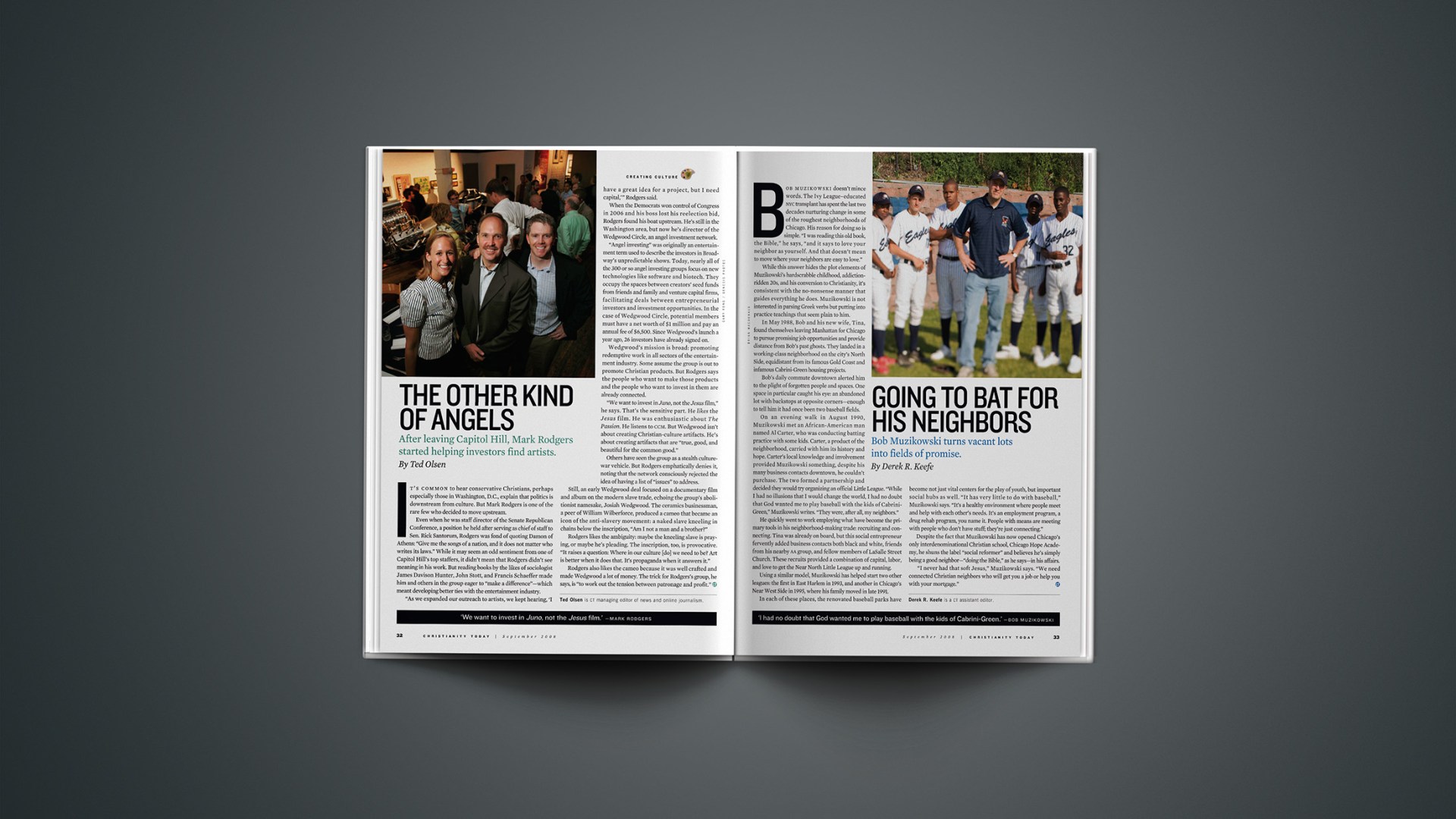Bob Muzikowski doesn’t mince words. The Ivy League-educated nyc transplant has spent the last two decades nurturing change in some of the roughest neighborhoods of Chicago. His reason for doing so is simple. “I was reading this old book, the Bible,” he says, “and it says to love your neighbor as yourself. And that doesn’t mean to move where your neighbors are easy to love.”
While this answer hides the plot elements of Muzikowski’s hardscrabble childhood, addiction-ridden 20s, and his conversion to Christianity, it’s consistent with the no-nonsense manner that guides everything he does. Muzikowski is not interested in parsing Greek verbs but putting into practice teachings that seem plain to him.
In May 1988, Bob and his new wife, Tina, found themselves leaving Manhattan for Chicago to pursue promising job opportunities and provide distance from Bob’s past ghosts. They landed in a working-class neighborhood on the city’s North Side, equidistant from its famous Gold Coast and infamous Cabrini-Green housing projects.
Bob’s daily commute downtown alerted him to the plight of forgotten people and spaces. One space in particular caught his eye: an abandoned lot with backstops at opposite corners—enough to tell him it had once been two baseball fields.
On an evening walk in August 1990, Muzikowski met an African-American man named Al Carter, who was conducting batting practice with some kids. Carter, a product of the neighborhood, carried with him its history and hope. Carter’s local knowledge and involvement provided Muzikowski something, despite his many business contacts downtown, he couldn’t purchase. The two formed a partnership and decided they would try organizing an official Little League. “While I had no illusions that I would change the world, I had no doubt that God wanted me to play baseball with the kids of Cabrini-Green,” Muzikowski writes. “They were, after all, my neighbors.”
He quickly went to work employing what have become the primary tools in his neighborhood-making trade: recruiting and connecting. Tina was already on board, but this social entrepreneur fervently added business contacts both black and white, friends from his nearby AA group, and fellow members of LaSalle Street Church. These recruits provided a combination of capital, labor, and love to get the Near North Little League up and running.
Using a similar model, Muzikowski has helped start two other leagues: the first in East Harlem in 1993, and another in Chicago’s Near West Side in 1995, where his family moved in late 1991.
In each of these places, the renovated baseball parks have become not just vital centers for the play of youth, but important social hubs as well. “It has very little to do with baseball,” Muzikowski says. “It’s a healthy environment where people meet and help with each other’s needs. It’s an employment program, a drug rehab program, you name it. People with means are meeting with people who don’t have stuff; they’re just connecting.”
Despite the fact that Muzikowski has now opened Chicago’s only interdenominational Christian school, Chicago Hope Academy, he shuns the label “social reformer” and believes he’s simply being a good neighbor—”doing the Bible,” as he says—in his affairs.
“I never had that soft Jesus,” Muzikowski says. “We need connected Christian neighbors who will get you a job or help you with your mortgage.”
Derek R. Keefe is a CT assistant editor.
Copyright © 2008 Christianity Today. Click for reprint information.
Related Elsewhere:
Bob Muzikowski’s 2001 book, Safe at Home, is available through Amazon.com and other book retailers.
The 2001 film Hardball was based on Muzikowski’s Chicago league, but Muzikowski really didn’t like it.
Sports Illustrated covered Muzikowski in 1992.
This article is the fifth of five profiles in Christianity Today‘s cover package on “The New Culture Makers.”
Christianity Today also wrote about the artist Makoto Fujimura, Wedgwood Circle, the Prison Entrepreneurship Program, and Meritt Sawyer’s book club.
Crouch spoke with CT about culture making on a local scale.










